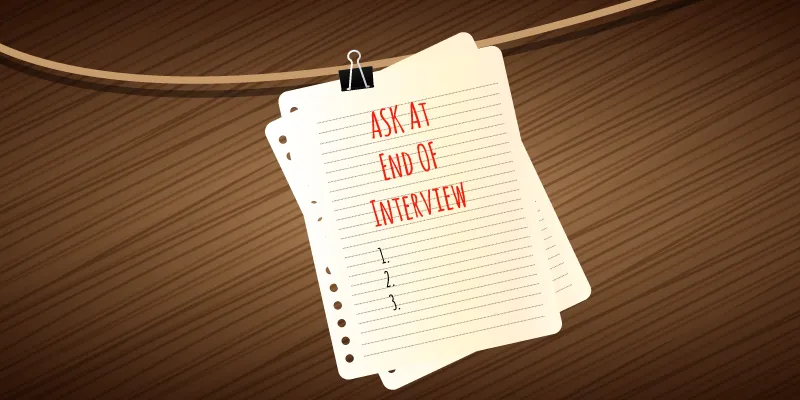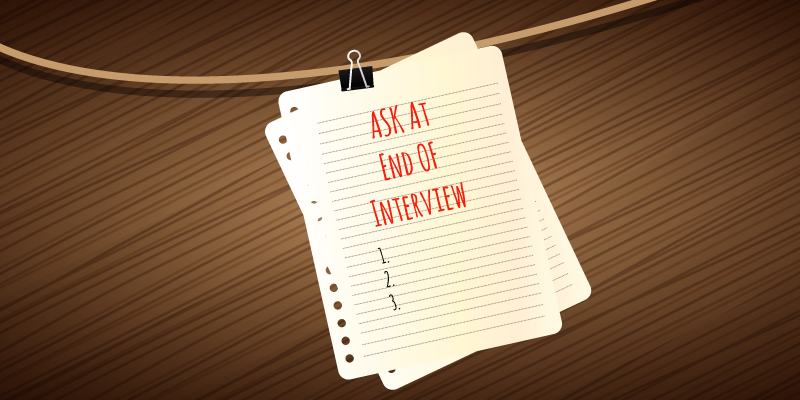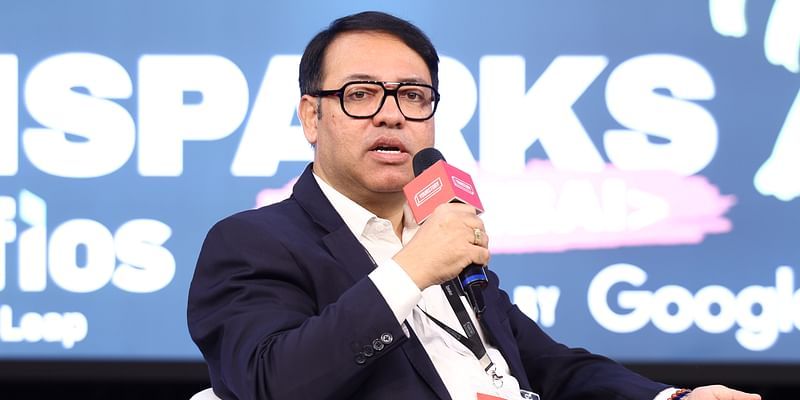What should you ask at the end of an interview?
Let’s face it, while job interviews are supposed to be a conversation between the employer and the candidate, to many people it often feels like an interrogation. Being inquisitive in a job interview can be a plus point. It can make you stand out from the many applicants that are already in the race and give you clarity on expectations and constraints from both sides. Interviews, hence, have to be a dialogue between both the parties to evaluate individual interests and suitability.

So, when at the end of the interview when the interviewer asks, “Do you have any questions for me?", instead of being all humble and acting naive, take advantage of the situation and clear all doubts to ensure that you don’t regret accepting the offer later if things turn out to be in your favour. Benefit? It will make you look attractive to the potential employer.
That said, even employers expect you to ask questions. If you don’t, you risk appearing disinterested or worse, less intelligent. Remember, it’s an opportunity that you can benefit most from and thus, whatever you ask should be thoughtful and deliver clarity of intentions. Amy Hooper, President of TalentZoo, explains “Your questions can, in fact, make or break an interview. If they are not thoughtful, or if you ask something that has been addressed, this can hurt you way more than it can help. Asking smart, engaging questions is imperative,” as stated by Business Insider.
But what should be your questions? Is there any set pattern that you could follow? Here are some that will help you make the right move, every time!
Opportunity
The process of asking questions gives a perfect opportunity to determine if you’d be happy working for the particular organisation and whether your goals are aligned with theirs. Teri Hockett, Chief Executive of What’s For Work?, a career site for women observes, “The very process of asking questions completely changes the dynamic of the interview and the hiring manager’s perception of you, also giving you an opportunity to unveil details that you wouldn’t have known otherwise,” also stated by Business Insider.
There are various questions that you can, and should, ask in a job interview. These can be related to the work culture and environment of the organisation, scope of promotion from the specific job role, annual performance review structure, training opportunities and many more.
Here are some questions that you can ask in this domain:
- What kind of training and development opportunities do you offer?
- What is the scope of promotion?
- What do you think is the best way to align my experience with the role?
- Do I get a team to manage? If yes, what could be the strength of the team?
- Will I be sent to seminars and conferences for knowledge development?
But there is one question that you should ask that will give the most satisfaction and clarity about the job role that you are being interviewed for. The question is, “How would you define success for this position?”
Keep in mind that this question applies for various job roles in varying industries. Be sure to consider the culture of the organisation. Adopt the right tone and convey a positive attitude.
The question and you
What is beneficial about asking such a question is that it gives you the insider information about the position and the interviewer’s perspective on the organization. Lynn Taylor, the author of Tame Your Terrible Office Tyrant: How to Manage Childish Boss Behaviour and Thrive in Your Job, says that as interviewers answer this question, they provide insight on how your career goals will align with the company’s priorities.
The response you receive will give you input as specific skills they seek, the real priorities for the job and an insider’s perspective of how you can secure this position. You can understand a lot about the company from this person who has spent good amount of time in the organization. This will also help gauge whether the position will be challenging and motivating enough to match your expectations. This will also help you analyse whether the job will be a stepping stone for your own personal growth or not.











